Have you ever considered setting up your own RV Park? It’s an exciting prospect, as it can be both a lucrative business opportunity and a chance to create something special for the community. However, it’s important to understand the zoning requirements associated with this type of venture. Knowing what is necessary and permissible when it comes to zoning will ensure that your RV park gets off on the right foot. In this blog post, we’ll explore the essentials of zoning as well as what you need to know in order to establish an RV Park.
Table of Contents
What is an RV Park and zoning?
An RV Park is a facility that offers camping and recreational vehicle (RV) accommodations. It typically includes facilities such as electric, water, sewer, and cable hookups as well as wi-fi and other amenities like restrooms, showers, playgrounds, swimming pools and more. Depending on the size of the park, it may also feature additional services such as a store, laundry facilities and an on-site restaurant.
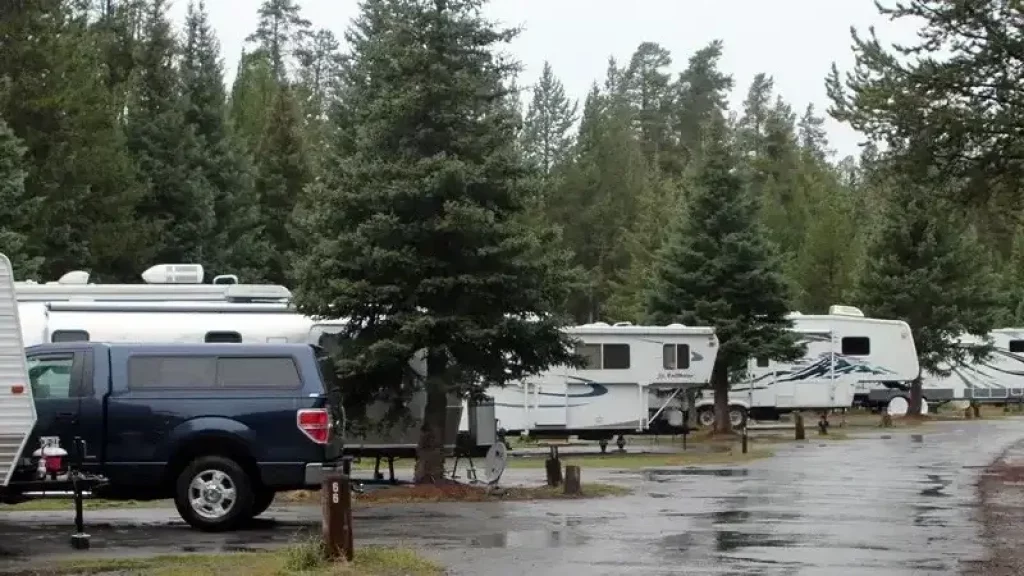
Zoning is a set of laws that are designed to regulate land use within a particular area. They are put into place by local governments and dictate how the land may be used, including what types of activities or businesses can operate there. In most cases, zoning codes are designed to protect public health, safety and welfare.
What Are The Permits Required To Start An RV Park?
Before you can begin building an RV park, you must obtain the necessary permits from the local government. This can include zoning permits, building permits and other types of authorization. Depending on the size of your park and any special features that may be included, you may also need to apply for additional permits such as those related to water or sanitary systems. You will also likely need to secure a business license before opening your park.
When applying for any of these permits, you will need to provide detailed information about the planned layout and features of your RV park. This includes a plan of the entire area, a description of the services that will be offered, and a list of all of the rules and regulations that must be followed. Once all permits have been approved by local authorities, you can then begin construction [1].
How to Find Land Zoned for Recreational Vehicle Living
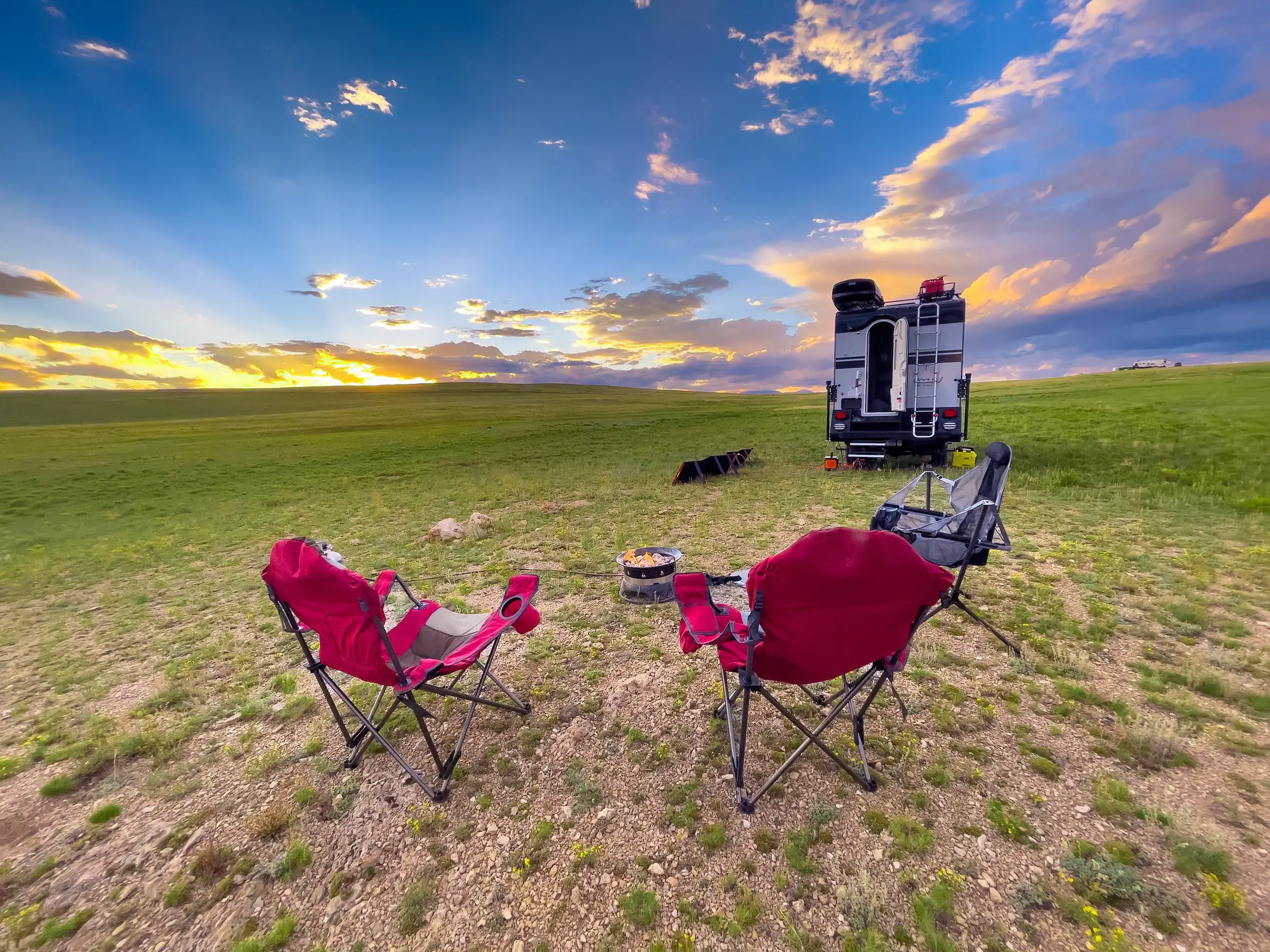
If you’re looking for a permanent or semi-permanent place to park and live in your recreational vehicle, finding land zoned for this type of living can take some work. Here are a few tips that can help:
- Research local zoning regulations within the area(s) you’re interested in. Some municipalities may have specific laws related to recreational vehicle living, so it’s important to know what type of zoning is needed.
- Talk to the local officials in charge of land development or community planning in each area. They may be able to provide additional information about potential areas zoned for RV living.
- Look for parcels of land that have already been designated as recreational vehicle parks or campgrounds. These may be more suitable for extended stays in an RV than a regular residential lot.
- Check with real estate agents and brokers who specialize in recreational vehicle properties. They often have access to land specifically zoned for this type of living, as well as other listings that may provide potential options.
Finally, it’s important to keep safety in mind when considering a recreational vehicle park or campground. Make sure the area is well-lit and secure, and that you have access to basic amenities like water and electricity if needed. Taking these precautions can help ensure your stay in an RV is comfortable, safe, and enjoyable.
The Process for Establishing an RV Park
The process of establishing an RV Park is complex and involves obtaining the necessary permits, meeting certain zoning regulations and obtaining any other required approvals. Before getting started, it’s important to research local zoning laws as they may differ from state to state. You’ll need to get familiar with the applicable regulations to ensure you’re in compliance with local ordinances.
Once this is done, the next step is to acquire the necessary permits and approvals from your municipality or county government. These will usually include a building permit, as well as an approval for use of land for a recreational vehicle park or campground. It’s important to note that the requirements may vary depending on the size, scope and location of the proposed RV Park.
Once all the necessary permits have been obtained, you’ll need to ensure that your property meets certain safety standards. This may include ensuring that there is adequate lighting, water supply, waste disposal and other amenities as required by local laws. You’ll also need to make sure any structures, such as restrooms or showers, meet building codes and that the parking area is large enough for all types of RVs.
Finally, it’s important to consider how you will manage the RV Park once established. This may involve setting up a management system with staff responsible for maintenance and upkeep of the property, enforcing safety rules, collecting fees and dealing with customer complaints. Having an efficient and organized system in place is necessary for a successful RV Park.
Knowing the process of establishing an RV Park can help make the experience more manageable and ensure that you are compliant with local regulations. With proper planning, you can create a safe and enjoyable environment for visitors to enjoy their stay in your RV Park [2].
7 Common RV Park Requirements
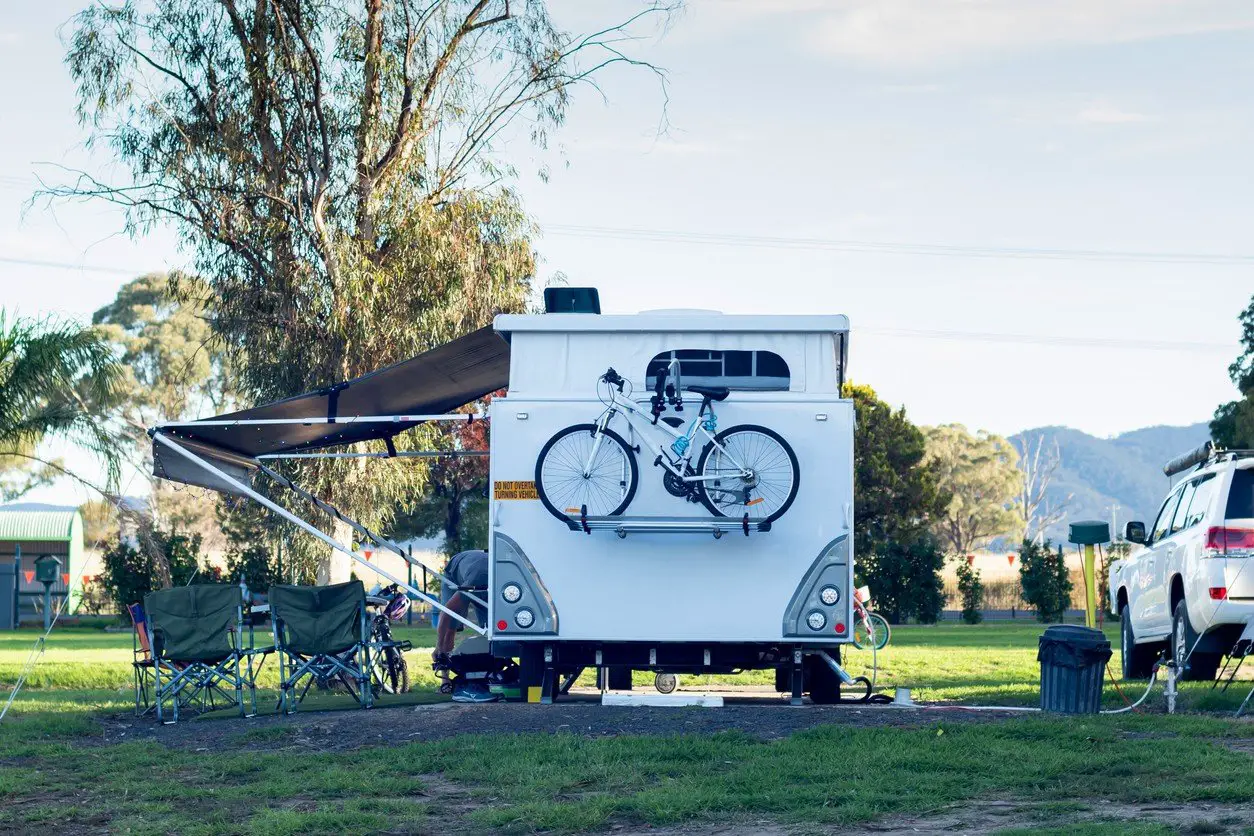
Roadways
Most RV parks have clear requirements for the width and strength of roadways. Generally, roads must be wide enough to accommodate two vehicles and strong enough to support a large motorhome or trailer turning around without damaging the surface. Other common rules may require that speed limits are posted, no parking is allowed on the roadway, and all vehicles must display current license plates.
RV Sites
Most parks set minimum standards for RV sites in order to maintain a safe and pleasant environment. This may include rules such as no open fires, keeping the area clean of debris or garbage, only one vehicle per site, and limiting loud activities after dark. In addition, some parks may require that RVs are completely self-contained with on-board sewage, water, and electrical systems.
Noise Control
It’s important for parks to maintain a peaceful atmosphere for all of its guests, so most require that noise levels are kept to a reasonable level. This may include no loud music after dark, quiet generators (which must be turned off at night) and no vehicles revving their engines.
Pets
Most parks allow pets, but they may have specific rules in place about how these animals should be kept. These can range from off-leash areas within the park to a ban on certain breeds or sizes of pet. Some parks may also require that dogs are muzzled, while others require proof of current vaccinations for all animals.
Alcohol Consumption
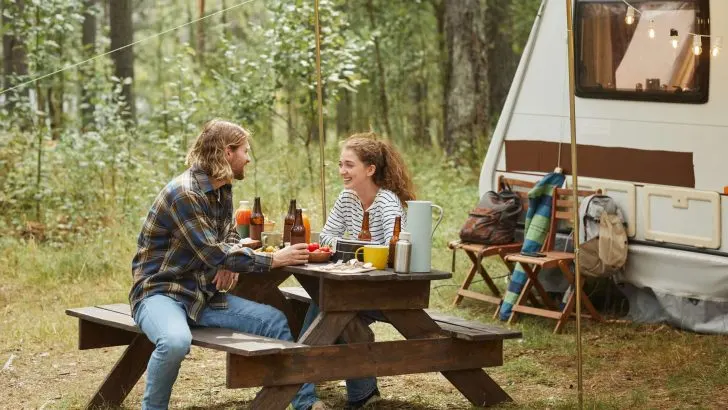
Most RV parks have rules regarding the consumption of alcohol on their premises. For instance, some may only allow alcohol to be consumed in specific areas or require that it is not sold within the park. Other rules include no littering (glass bottles are often prohibited), and guests who become intoxicated may be asked to leave the park.
Toilet/Privies and Sanitary Stations
To keep the park clean and hygienic for all guests, RV parks usually require that toilets are kept clean. This may mean that no chemicals or cleaners can be used in them, that garbage cans are emptied regularly, and that the toilet is cleaned after each use. In addition, it’s also common to have sanitary stations scattered around the park where users can dispose of wastewater and rubbish.
Check-In/Out Times
Most RV parks have strict check-in and check-out times to ensure that the park remains orderly. This may mean that visitors must leave the park by a certain time each day, or they may be charged for an extra night if they stay beyond the designated hours. Additionally, some parks may require that visitors check in at the office before setting up camp.
Water Supplies
In order to keep the park running smoothly and safely, many RV parks require that water sources are used responsibly. This may include rules such as no filling swimming pools or hot tubs with drinking water, and no taking long showers. Some parks also have their own potable water supplies which visitors must use when filling up their tanks, rather than tapping into local water sources.
Sewage/Septic/Wastewater System
Most RV parks require that visitors have their own sewage system or wastewater tanks, as well as sanitation systems which must be emptied before departing the park. Rules may include not dumping grey water or sewage on the ground, and ensuring that all tanks are properly sealed and secure when travelling from one destination to another. Additionally, some parks may require visitors to use specific dump stations or sanitary systems when emptying the tanks.
Garbage/Refuse Disposal

In order to keep the park clean and free of debris, most RV parks have rules regarding garbage disposal. This may include requiring visitors to bag their garbage or use specific containers for refuse, as well as regularly emptying any communal bins onsite. In addition, some parks may also require that grey water or sewage is disposed of in a designated area to reduce potential health hazards.
Fire Containment/Management
For the safety of all guests, most RV parks also require that fire containment and management measures are in place. This may include only using enclosed grills or campfires, having an extinguisher on hand at all times, and ensuring any flammable materials such as propane tanks are stored well away from the fire. Additionally, some parks may also require that visitors check in with staff before lighting any fires [3].
RV Park Startup Costs and Factors to Consider
Permit/License Fees, Insurance and Taxes
Before you can open your campground, you will most likely need to obtain a permit or license from your local government. Additionally, obtaining liability insurance and paying any applicable taxes are necessary steps in the process. Be sure to research which permits/licenses and insurance policies may be required for your specific area before making any decisions.
Initial Investment Costs
The costs to get your campground up and running may vary widely depending on the size, scope, and type of camping area you are setting up. You will need to make an initial investment in items such as utility hookups, restrooms, showers, landscaping materials, recreational equipment, furniture and other necessities for operating a campground. It is important to account for these costs in your budget when beginning a campground. In this case you will need from $20,000 to $200,00 for investment in items.
Upkeep and Maintenance Costs
Once your campground is up and running, you will need to budget for ongoing costs such as utilities (electricity, water), maintenance of facilities and grounds. Additionally, you may need to hire staff or enlist volunteers to help keep the park clean and running smoothly. Be sure to include a budget for these costs in your business plan. You may need to spend up to five thousand dollars or more each year on upkeep and maintenance.
Marketing Strategies
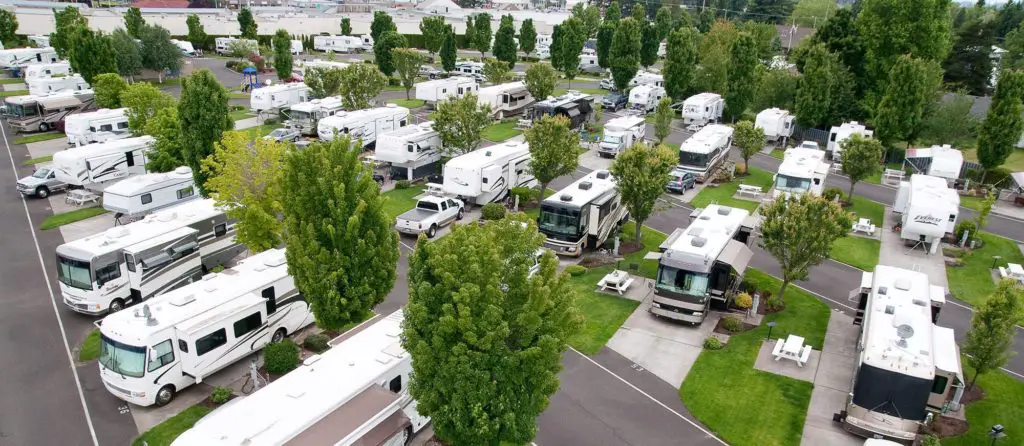
Once you have your campground set up, it is important to create a marketing strategy in order to attract customers. You may want to consider strategies such as developing a website, utilizing social media platforms, creating print materials or even attending camping expos. It is important to determine the best methods that will reach target markets and draw in customers. This may require an additional investment, but it can be necessary for driving business success. For example, establishing an online presence may cost several hundred dollars, and attending a camping expo could range from $500 to $2,000.
Customer Service
Once customers have arrived at your campground, providing excellent customer service should be a priority. You want to ensure that each guest has an enjoyable experience so they will be likely to return in the future, as well as recommend the park to their friends and family. Creating a customer service policy and training your staff accordingly can help ensure that guests have an enjoyable experience. Additionally, you should provide amenities such as Wi-Fi access, laundry facilities, convenient check in/out times and other features that customers may appreciate. Investing in customer service will help guarantee the success of your business.
Community Involvement
Getting involved in the local camping and outdoor community can also be a great way to raise awareness for your campground. Participating in events, hosting meet-ups or sponsoring local sports teams are all great ways to get people talking about and visiting your RV park. Additionally, building relationships with local businesses can be beneficial for cross-promotion and generating more interest in your park. Participating in the community can be a great way to get noticed and increase visibility of your business. It may cost for you to participate in local events, but the return on investment can be invaluable.
FAQ
What type of zoning is needed for RV park in Arizona?
In Arizona, RV parks are classified as Recreational Vehicle Parks and Communities in the Zoning Ordinance of the county where the park is located. Generally, a Special Use Permit from the zoning authority is required before any development or construction can begin on an RV park. Additionally, there may be specific requirements for setbacks, parking spaces, landscaping and other aspects depending on the local zoning regulations. It is important to consult with a local attorney who specializes in zoning law to ensure that you are in compliance with all applicable ordinances.
Where can I find information about RV park vacancies?
The best way to obtain information about RV park vacancies is by contacting the park directly or searching for online directories and reviews of RV parks in the area. Additionally, it is also possible to check out listings on websites such as RV Parky or Good Sam Parks which provide detailed reviews and availability information for a large number of RV parks across the country.
What are the benefits of living in an RV park?
Living in an RV park offers several advantages compared to traditional housing. RVs are typically much more affordable to purchase than a traditional home, and they also offer the flexibility of being able to move from place to place relatively quickly. Additionally, RV parks often have amenities such as swimming pools, hot tubs, laundry facilities, and other recreational activities that may not be available in a standard neighborhood. Finally, living in an RV park allows you to enjoy the beauty of nature without having to worry about upkeep and maintenance as much as you would with a traditional home.
Are there any restrictions on RV park ownership?
Each jurisdiction will have its own specific zoning regulations that apply to RV parks, so it’s important to check with your local zoning authority before making any decisions. In general, however, most parks will require a special use permit from the zoning authority in order to build or operate an RV park. Additionally, there may be restrictions on how many RVs can be parked at the site and what types of activities are allowed. It is important to review all local ordinances before purchasing any land for an RV park.
What safety measures should I take when living in an RV park?
It is important to always be aware of your surroundings and practice common sense safety measures while living in an RV park. Be sure to secure all doors and windows at night, and avoid leaving valuables unattended. It’s also a good idea to make friends with the people around you so they can help keep an eye on your RV while you’re away. Additionally, it’s important to be aware of any potential hazards in the area such as wild animals or hazardous terrain and take appropriate steps to mitigate these risks.
Useful Video: RV & Travel Trailer Parking: City Zoning, Private Property, and Rural Land
Conclusion Paragraph
Ultimately, the city council will need to make a decision about zoning for an RV park in their jurisdiction. After conducting research and considering the needs of both the citizens and business owners, it is clear that providing space for an RV park can benefit all parties involved. An RV park will offer visitors to the area a more comfortable and secure place to stay and business owners the opportunity to increase their customer base. Additionally, granting a zone for an RV park can help to boost the local economy by providing additional jobs and generating more revenue for the city. The council should carefully weigh these benefits when making their decision on zoning for an RV park in their jurisdiction.
References:
- https://www.profitableventure.com/type-get-permits-rv-park/
- https://lev.co/blog/assets/how-to-start-an-rv-park/
- https://www.mortonsonthemove.com/rv-park-rules/

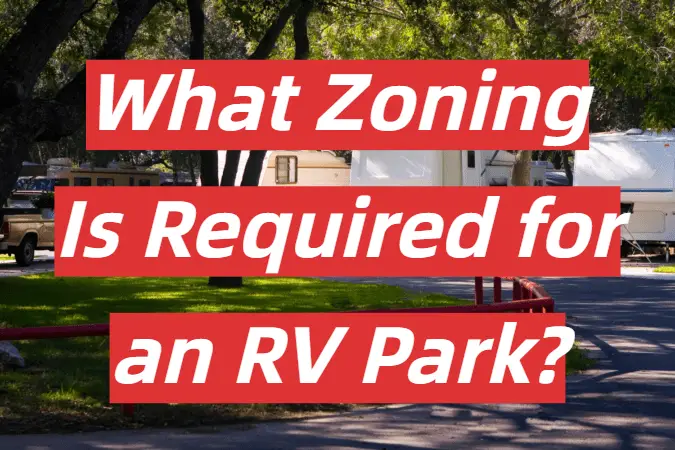

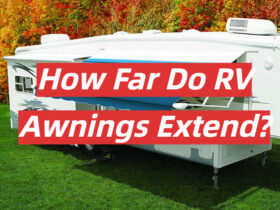
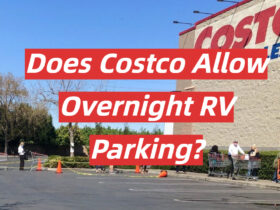
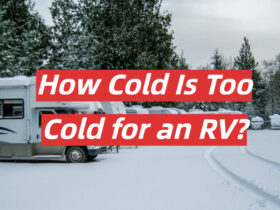
Leave a Reply